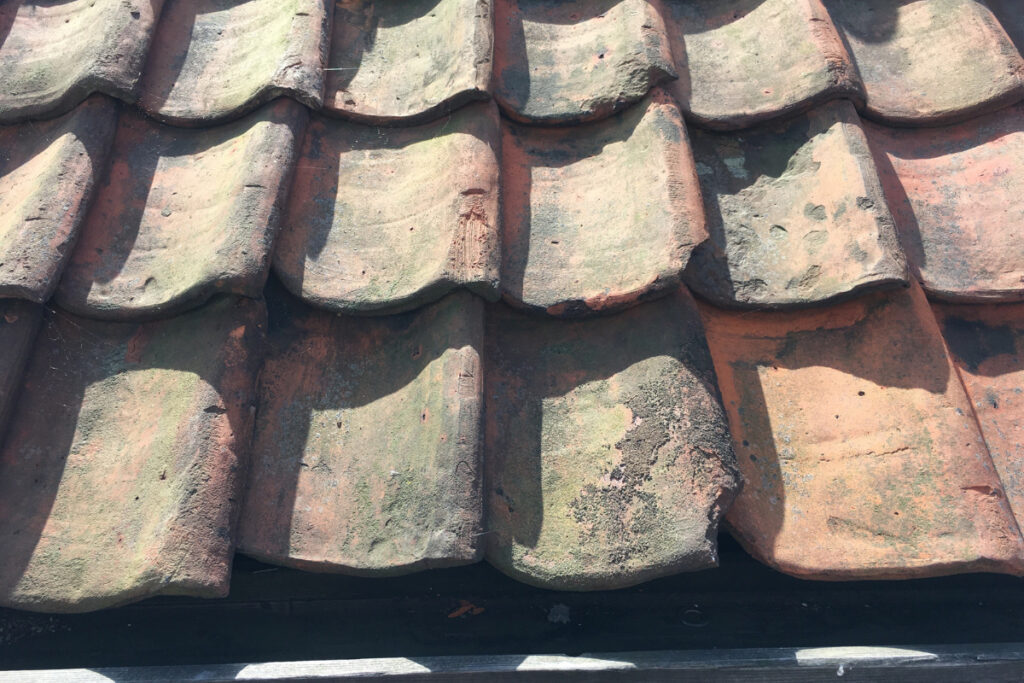Introduction
When remodeling or constructing, saving money is expected. Opting for the cheapest contractor may seem appealing. However, this decision can lead to more problems than savings. Low-budget contractors can cost more due to poor quality work and hidden fees. In fact, choosing the cheapest option isn’t always the best choice for contractors. This blog will explain the various factors you should consider when hiring a contractor for your property.
The Risks Of Choosing The Cheapest Contractor
Choosing the cheapest contractor may result in poor quality materials and workmanship, hidden costs and fees, lack of proper licensing and insurance, and unreliable service.
Poor Quality Materials And Workmanship
Opting for the cheapest contractor can lead to poor quality materials and workmanship, compromising your property’s integrity and durability. To cut costs, low-priced contractors may use substandard building materials that are more susceptible to wear and tear or violate construction safety standards.
For instance, a roofing company might choose inferior shingles that cannot withstand harsh weather conditions, leading to leaks or other damage over time.
When dealing with such workmanship issues, you could face major structural problems down the road – thus creating additional expenses for maintenance and potential premature replacement.
An example would be improperly installed insulation, causing higher energy bills due to inefficient temperature control within your property. Similarly, poorly constructed plumbing systems could result in costly water damage that jeopardizes the overall value of your home or business.
Hidden Costs And Fees
Choosing the cheapest contractor for your property might initially seem like a wise financial decision. Still, it’s important to be aware of the hidden costs and fees that can end up causing you more expenses in the long run.
Cheap contractors often reduce their prices by cutting corners on labor, materials, or other vital aspects of the construction process.
In addition to compromising on quality or taking shortcuts, cheap contractors may exclude certain crucial elements from their initial estimates that should be included in your overall budget.
These could encompass building fees and impact fees, which are necessary expenditures for home construction projects. Also worth considering is price reasonableness – this can be determined based on costs incurred or cost estimates provided by reliable sources or comparisons with similar projects completed by reputable companies.

Lack Of Proper Licensing And Insurance
One significant risk in choosing the cheapest contractor is the potential lack of proper licensing and insurance. Entrusting your property to an unlicensed or uninsured contractor can increase the chances of accidents, property damage, and legal issues that could negatively impact your investment.
For instance, imagine hiring a contractor without adequate liability insurance only for them to inadvertently cause extensive water damage throughout your home during a renovation project.
To protect yourself and your property, it’s crucial to ensure that prospective contractors possess current licenses and applicable insurance policies like liability insurance or workers’ compensation.
Check specific construction industry regulations pertinent to your area and ask about relevant documentation while interviewing candidates.
Unreliable Service
Choosing the cheapest contractor may seem like a good idea to save money, but it often leads to unreliable service. A low price can be enticing but may come at a cost.
With unreliable service contractors, there is always the risk of poor workmanship and materials that are not up to standard. This can lead to extra costs in the long run as repairs and replacements must be made sooner than expected.
Additionally, an unreliable contractor may fail to show up on time or even disappear altogether, leaving you with unfinished projects and additional expenses.
The Importance Of Quality In A Contractor
Ensuring that your contractor uses high-quality materials, has expertise and knowledge in their field, and possesses proper licensing and insurance are all key factors in a successful project.
High-Quality Workmanship
A contractor’s workmanship is a critical factor in determining the quality of their construction project. High-quality workmanship means creating a well-constructed, safe, and aesthetically pleasing finished product that meets and exceeds industry standards.
When considering contractors, it is essential to evaluate their previous projects closely and ensure they have the skill set needed for your specific type of project. Quality should be prioritized over cost because poor work can lead to additional charges for repairs or replacements, lowered resale value, and even safety hazards.
Use Of Quality Materials
Choosing a contractor who prioritizes using quality materials in their work can significantly benefit property owners. High-quality building materials provide greater durability and longevity and require less maintenance in the long run.
Additionally, high-quality materials can contribute to better overall project outcomes, from improved aesthetics to increased energy efficiency. Quality materials are often more efficient at regulating temperature and mitigating noise pollution than cheaper alternatives.

Expertise And Knowledge
Choosing a contractor with expertise and knowledge ensures your construction project runs smoothly. Specialized knowledge in various areas can provide valuable services for large or complex tasks, such as electrical work or plumbing installation.
Hiring contractors with experience working with the specific materials and techniques required for your project is important.
Contractors with high levels of expertise and specialized knowledge also typically carry professional certifications and licenses relevant to their field of work. These qualifications demonstrate their ability to meet industry standards and ensure they possess the skills to deliver quality workmanship on your property.
Proper Licensing And Insurance
Proper licensing and insurance are critical factors to consider when hiring a contractor. To obtain a license, all contractors must provide proof of a bond, financial statement, and worker’s compensation insurance.
This protects homeowners from being held liable for any injuries or damages that may occur during the project. It is essential to check with TDLR to ensure that contractors are correctly licensed and have no complaints filed against them.
Additionally, verifying their insurance coverage is essential if anything goes wrong during the project.
Transparent Pricing
Transparent pricing is essential when choosing a contractor because it ensures you get value for your money. With price transparency, no hidden costs or fees can strain your budget, and you can plan accordingly.
For instance, knowing the breakdown of labor costs and the cost of materials helps you understand how much you’ll spend on each project aspect. This information helps in making informed decisions while working within your project budget.
For example, if a contractor provides a detailed quote explaining why certain costs are higher than others based on material quality or expertise required to complete specific tasks better than others, then an owner will feel more comfortable paying that more elevated amount since they know what goes into it – this fosters excellent relationships built on trust rather than suspicion or unease.
Factors To Consider When Choosing A Contractor
When selecting one, consider the reputation, experience, communication skills, detailed quotes and estimates, professional certifications, and contractor licenses. Read to learn why the cheapest option may not always be the best.
Reputation And Experience
A contractor’s reputation and experience are important when choosing the right professional for your project. Selecting someone with a proven track record of delivering quality workmanship promptly is crucial.
A reputable contractor will be known for their professionalism, reliability, and trustworthiness. With years of industry experience, they possess the knowledge and skillset required to handle any challenges that may arise during a project.
References And Reviews
Before hiring a contractor, it is essential to do your research and ask for references and reviews from previous clients. This will provide insight into their quality of work, reliability, communication skills, and overall customer satisfaction.
Take the time to see examples of their past projects through photos or even in-person visits if possible.
As you evaluate these references and reviews against other factors like price points or availability, be sure to also look at any relevant certifications or licenses that the contractor may hold.
Communication And Responsiveness
Effective communication and responsiveness are crucial when choosing a contractor for your construction project. You want a contractor who can clearly articulate their ideas, listen to your needs and concerns, and keep you informed throughout the process.
A responsive contractor will promptly return phone calls, answer questions, and provide updates on the project’s progress.
A lack of clear communication or slow response times can lead to misunderstandings, delays, and unsatisfactory results. It’s important to work with a qualified contractor who understands how to manage expectations while keeping clients informed every step of the way.
Detailed Quotes And Estimates
Before choosing a contractor for your project, obtaining detailed quotes and estimates is important. This will help you understand the costs associated with your project and ensure that you are not hit with unexpected expenses.
A detailed quote should include all direct costs of the project and any markups imposed by the contractor for general and field supervision expenses.
It’s crucial to remember that a low-priced estimate doesn’t always translate to high-quality workmanship or materials. Always prioritize transparency over cost when selecting a contractor.
Professional Certifications And Licenses
Hiring a contractor with professional certifications and licenses can give you peace of mind knowing they have met certain industry standards. For example, if you’re considering a general contractor for your home renovation project, ensure they have the state license to operate legally in your area.
Credentials like these demonstrate that a contractor has taken steps to achieve excellence in their craft beyond just gaining experience on the job site. When selecting contractors for your property needs, don’t hesitate to ask them about their qualifications and seek proof of licensing or certification.
The Value Of Expertise In Your Specific Type Of Project
The value of expertise in your specific type of project cannot be overstated when selecting the right contractor. A contractor with a proven track record in your project will have invaluable knowledge and experience to ensure they provide quality workmanship and use high-quality materials.
Expertise also means that contractors can offer pricing transparency, identify potential issues before construction begins, and suggest alternative options where appropriate.
Warning Signs To Watch Out For When Choosing A Contractor
Be cautious of contractors who use pushy or aggressive sales tactics, lack credentials and certifications, offer unrealistically low prices, provide incomplete or vague contracts, or use lower-quality materials.
Unrealistically Low Prices
Beware of contractors who offer unrealistically low prices for their services. While these low bids may seem like a great deal, they often come with hidden costs and risks that can cost you more money in the long run.
Low-priced contractors may use subpar materials or cut corners on workmanship, leading to costly repairs down the road. They may also lack proper licenses and insurance, leaving you vulnerable to liability issues if something goes wrong during the project.
Incomplete Or Vague Contracts
One of the biggest risk factors in choosing the cheapest contractor is the use of incomplete or vague contracts. It’s crucial to have a detailed written agreement that specifies all terms of the agreement and any expectations to avoid issues down the line.
Verbal agreements are not enough, as they can lead to misunderstandings and disputes. A well-written contract should include information on quality standards, materials specifications, work statements, completion dates, and any necessary legal requirements.
For example, if you’re hiring a contractor for a kitchen remodel, your contract should include details about what kind of cabinets will be used and how they will be installed.
Pushy Or Aggressive Sales Tactics
A contractor’s sales tactics can say a lot about their professionalism and reliability. Be wary of those who use invasive or aggressive sales techniques to secure your business.
These contractors may pressure you into making hasty decisions, using scare tactics, or offering unrealistic promises. Remember that you should always feel comfortable communicating with your contractor, and they should respect your time and budget constraints.
It is important to review their reviews and ask for references before hiring them for any project is important. A good contractor would provide detailed quotes and estimates that outline precisely what needs to be done within transparent pricing structures without hiding fees or costs somewhere down the line later on.
Lack Of Credentials And Certifications
One of the warning signs to watch out for when selecting a contractor is the lack of proper credentials and certifications. When a contractor lacks the necessary qualifications, likely, they don’t have sufficient skill or knowledge to perform quality work. It can also indicate that they are not committed to their profession or don’t prioritize professional development. Without these critical credentials, property owners risk hiring an unscrupulous or inexperienced individual who may do more harm than good.
As such, verifying if any potential contractor has the appropriate licenses, registrations, and insurance before starting any project is important. Choosing a reputable contractor with all the necessary qualifications ensures accountability and responsibility during every step of your project, from budgeting to completion.
Lower-Quality Materials
Choosing a contractor who uses lower-quality materials to cut costs may seem like a good deal at first, but the long-term consequences can be disastrous. It can lead to poor workmanship in construction or remodeling projects and decrease your property’s resale value and quality of life.
In some cases, contractors may even use substandard materials after receiving payment, which is considered fraud and could result in legal action. Property owners must understand the importance of using high-quality materials when hiring a contractor for their project.
Understanding The True Cost Of A Cheap Contractor
Choosing the cheapest contractor can lead to hidden fees and costs, unforeseen issues and repairs, reduced resale value and quality of life, and lower efficiency and effectiveness.
Hidden Fees And Costs
Choosing the cheapest contractor may seem wise to save costs, but it can cost you more in the long run. Hidden fees and charges are among the biggest risks of choosing a cheap contractor.
These fees can come from various sources, including errors or delays that the contractor is responsible for during construction. Some contracts may limit the amount of reimbursement for these hidden costs, so not all expenses may be covered.
Buyers of new homes should also be aware of potential hidden costs, such as unforeseen repairs or upgrades, once they move in. For instance, business-savvy contractors may charge twice the total cost of labor and material to net a 15% profit. This will leave homeowners with unexpected expenses on their bills.
Unforeseen Issues And Repairs
Hiring the cheapest contractor may seem like a wise financial decision. But it often results in unforeseen issues and repairs that cost more in the long run. These include construction errors, unexpected site conditions, or material defects not discovered during inspections.
Planning for these eventualities by adding 10% to the project budget can help anticipate any problems. Furthermore, ensuring the contractor offers detailed quotes and estimates is essential. This helps avoid hidden fees and costs, which can result in additional expenses not initially planned for.
To avoid costly mistakes when hiring contractors for your next project, it is essential to prioritize quality over cost. Choosing an experienced expert may come at a higher price than other contractors. However, their knowledge pays dividends in avoiding expensive errors during construction projects. They have seen similar mistakes before and know how to solve them effectively with less hassle overall. This includes improperly installed electrical wiring or un-level flooring.
Reduced Resale Value And Quality Of Life
Choosing the cheapest contractor for a home renovation or construction project can have hidden costs that may negatively impact your property value and quality of life. These costs are often associated with poor workmanship, inferior materials, and unforeseen repairs from shoddy construction practices.
Using builder-grade materials instead of higher-quality ones may reduce the actual cash value of your property. This can cause you to lose out on potential resale value.
Expensive or unnecessary home upgrades that don’t add visible appeal can also detract from your quality of life. Considering all these factors when choosing a contractor and weighing their actual cost against the initial price tag is essential.
Furthermore, substandard work can lead to damages that may result in costly lawsuits. It can also damage relationships with future contractors. These contractors may charge more to correct the mistakes before starting new projects.
Efficiency And Effectiveness
Efficiency and effectiveness are crucial factors to consider when choosing a contractor for your project. A cheap contractor may seem attractive. However, their lack of expertise and quality could result in inefficient work that costs you more in the long run.
For instance, a cheap contractor may use lower-quality materials that require frequent repairs or replacements. These may cause delays and additional expenses for property owners.
On the other hand, working with a high-quality contractor who uses top-notch materials and has extensive knowledge can lead to efficient work, saving you time and money.
The Importance Of Maintaining Trust And Relationships
Maintaining trust and relationships with your contractor is crucial for any construction project. It’s not just about getting the job done. But also ensuring that the quality of workmanship meets your expectations and standards.
The selection of the cheapest contractor with no proper licensing or insurance coverage may cause the use of lower-quality materials or the performance of substandard work.
This may lead to costly repairs. This could have been avoided by investing in a reputable contractor at the beginning of the project.
Conclusion
Choosing the cheapest contractor may seem like a cost-effective solution at first. But it can end up being a costly mistake in the long run. Selecting an economical option over a value-based one can result in poor quality of work, inefficient planning, and hidden costs. These are some of the risks involved.
Prioritize experience, expertise, and professionalism when hiring a contractor for your construction or remodeling project. This is to ensure high-quality workmanship and transparent pricing.
Remember that the lowest bid is not always the best choice for your home or property. Invest in trustworthy contractors who take pride in their work and always strive to deliver exceptional results.

FAQs
- Why shouldn’t I always choose the cheapest contractor available?
Although cost is a significant factor in choosing a contractor, price should not be the only consideration. The cheapest option may not always provide quality workmanship or use high-quality materials. Often, this can lead to problems and extra costs down the line.
- How do I ensure that I’m hiring a reputable contractor?
To ensure that you’re hiring a reputable contractor, it’s important to research their credentials. Check for any licenses or certifications they hold. It’s also helpful to read reviews from previous clients and ask for references before making your final decision.
- What are some warning signs of an unreliable contractor?
Warning signs of an unreliable contractor include poor communication skills or responsiveness. Also lack of proper licensing or insurance and an unwillingness to provide references or detailed quotes. Another red flag is pressure tactics such as high-pressure sales pitches or demanding large deposits upfront.
- Why might a more expensive contractor be worth the investment?
An expensive contractor may use better materials and have more expertise, resulting in better craftsmanship and durability. Paying more doesn’t guarantee reliable service providers, but higher fees could reflect better experience and customer service.


